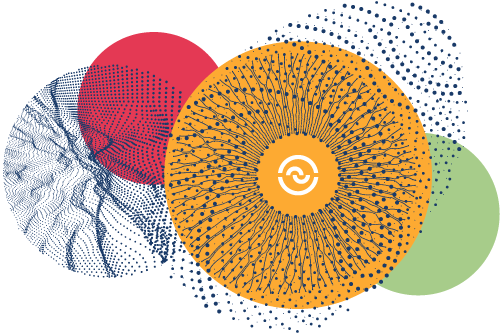



Applications for new Fellows are closed at this time. Please check back for updates.
Tackling current and future energy system challenges requires a diversity of perspectives and abilities. No single person or organization has the knowledge or capacity to independently create the energy system that the future requires of us. To do so, we require a diversity of stakeholder insights, perspectives, and contributions.
Since the Lab’s earliest days, the heart of the EFL has been its Fellowship, representing diverse perspectives from across the energy system. For the last nine years, EFL Fellows have established meaningful relationships, created a shared vision for our energy future, and launched and accelerated numerous initiatives together. We are so grateful to everyone who has participated in our Fellowship since 2015. We celebrate and value all contributions: to our collective knowledge and understanding, to building the Lab and its work streams, and to building the field of social innovation. The impact of these efforts has been felt in communities across the country.
For 2024, the Lab will not be accepting external applications for our Fellowship. As part of the next stage in our journey, and to best support our collective work, we have launched an enhanced hybrid program, open to current and past Fellows, Ambassadors and Alumni.
Ensuring opportunities for public engagement with our initiatives and the Lab community will remain a priority, building upon the strong foundations and relationships that convening our community has enabled. We are committed to ensuring that our wider community is able to continue to contribute their ideas, knowledge, and skills to our mission in meaningful ways.
Our newsletter is the best way to stay connected, receive updates, and discover opportunities for learning and active participation in our initiatives and engage with our work. We encourage you to stay connected to the Lab by signing up for our quarterly EFL Newsletter.
For more regular updates, we encourage you to follow us on LinkedIn, X (formerly Twitter), Instagram, and Facebook. These platforms will keep you in the loop about our latest developments, events, initiatives, and future opportunities.
We are a coalition of diverse innovators and leading organizations working together to accelerate the transition to the energy system the future requires of us.
As a trusted convenor, connector, and catalyzer of innovative energy system initiatives and solutions, our platform supports change-makers as they collaboratively explore Innovation Challenges for our energy future.
Since its public launch in 2015, the EFL has established itself as a trusted forum for building leadership capacity, fostering cross-sectoral collaboration, stimulating new narratives, and supporting early-stage development of new initiatives and innovative solutions.
We aim to inspire alignment and connectivity across sectors, while bridging ideas, people, and resources in a way that helps refine and develop solutions for our energy future.
For 2024, opportunities to get involved with the EFL will come primarily as participants in the Lab’s Innovation Challenges (where aligned). Invitations to participate in Innovation Challenges are targeted for the needs of the challenges and their specific phases, however there will be moments for the broader community to take part, provide input, and share feedback to the challenges’ output(s).
Please review our current Innovation Challenges and stay connected through our social media channels and newsletter.
From 2024 the Lab will convene and host two-to-three Innovation Challenges at any given time. These are multi-year, multi-phased, deep-dive explorations of an urgent and “wicked” challenge with coalitions made up of industry and subject matter experts, stakeholders, Indigenous partners and Rights Holders.
A social innovation is any initiative that challenges and, over time, contributes to changing the defining routines, resource and authority flows or beliefs of the broader social system in which it is introduced. (Frances Westley, 2014)
In the energy transition space, social innovation involves looking at our energy system holistically to enable, shift, or encourage new ideas, policies and practices conducive to energy system transformation. Social innovations are often thought of as “beyond technology”, under the observation that a needed technological innovation will not succeed if it is embedded in social systems that are working against its widespread adoption.
In the EFL, examples of social innovations include new policies, new collaborations, new narratives, new platforms, new programs, new processes, and / or new business models.